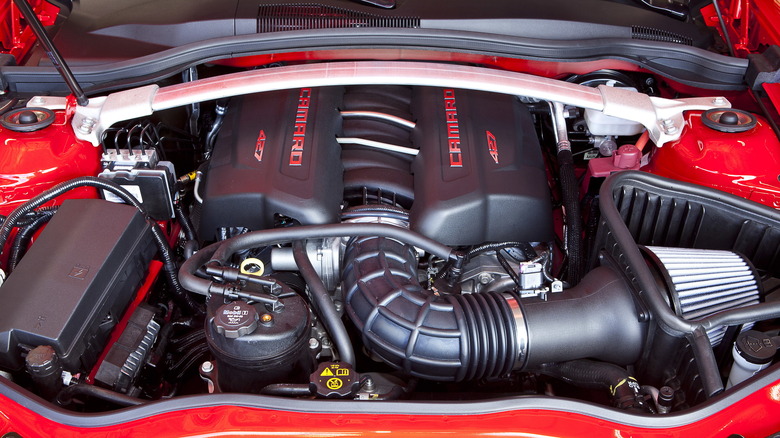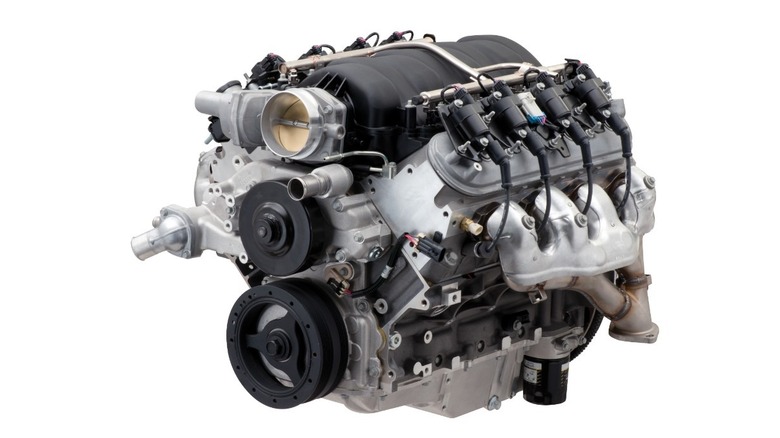What Makes The LS7 One Of The Best Engines Ever Made
There's an old saying among car buffs that "there's no replacement for displacement." Nowadays, that's not exactly true. Forced induction such as superchargers and turbochargers has replaced sheer cubic inches in most sports cars, muscle machines, and high-horsepower pickup trucks. But for over a decade, enthusiasts basked in the glory of the LS7, the largest small-block engine that Chevrolet ever put in one of its vehicles.
Talking about the largest small-block might seem like an oxymoron, but consider that since the late 1960s, the venerable 5.7-liter (350 cubic inches) V8 was the defacto small-block that went into Camaros, Corvettes, and light-duty pickups. When the LS7 was unveiled for the Z06 version of the C6 Corvette in 2006, it displaced a whopping 7.0 liters or 427 cubic inches.
At the time, its 505 horsepower and 470 lb-foot of torque made it the most powerful engine to ever get shoehorned into a production Corvette. With 700 horsepower Dodge Hellcats and Shelby Mustangs growing on trees today, 505 horsepower might not seem earth-shattering, but it was back then, especially without the aid of boost. According to a Car and Driver road test, the LS7 propelled the Z06 'Vette from zero to 60 mph in a scant 3.6 seconds on its way to an 11.7-second standing quarter mile.
Available to anyone, for a price
Brute horsepower wasn't the LS7's only parlor trick, though. It was also extremely lightweight due to its aluminum block and cylinder heads, plus exotic titanium connecting rods that helped it rev to a furious 7,000 rpm redline. To keep this engineering marvel well lubricated, a large 8-quart dry sump oiling system was fitted. Normally the domain of exotics and flat-out race cars, a dry sump prevents oil starvation during aggressive acceleration, cornering, and braking.
Besides the 2006 to 2013 Z06 Corvettes, the LS7 also found its way under the hood of some 5th-generation Z/28 Camaros in 2014 and 2015. It was available for purchase as a crate motor (literally, a fully assembled engine in a wooden crate), too, so hot rodders could retrofit modern performance into their classic rides, albeit with a hefty $14,837 price tag.
In 2020, Chevrolet surprised the performance community with an updated version of the LS7, only available as a crate engine, called the LS427/570 (above). The LS427/570 ditched the LS7's racing-inspired dry-sump oiling system in favor of a traditional oil pan, but it gained a more aggressive camshaft which bumped the horsepower rating to, yes, 570. Torque output also jumped to 470 lb-ft. Best of all, the LS427/570 was significantly less expensive than the LS7 at $12,700. Sadly, both engines were discontinued in 2022. If it's any consolation, there have been rumblings that the current Z06 Corvette's 670 horsepower LT6 could be offered in crate form soon.

